Daddy Yankee is the latest star to trade the charts for church
- Published
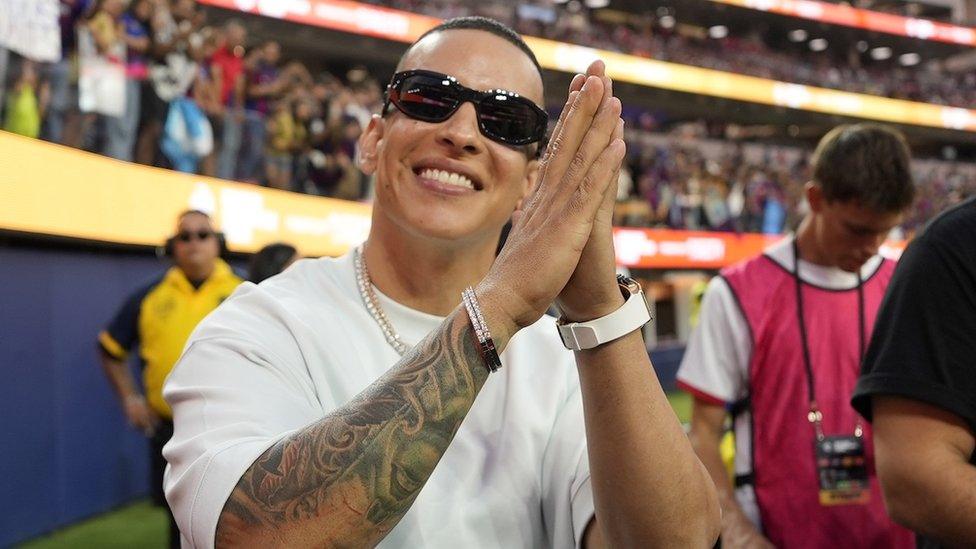
Daddy Yankee's hits include Gasolina and the Luis Fonsi duet Despacito
Puerto Rican superstar Daddy Yankee has announced he's giving up music to devote his life to religion.
The star, known for UK chart hits like Despacito and Gasolina, revealed the news to fans at the final show of his La Última Vuelta (Last Lap) world tour.
"Living a successful life is not the same as living a life with purpose," the 46-year-old rapper told the crowd.
"For a long time, I tried to fill an emptiness... that nobody could fill," he added, saying faith had saved him.
"That's why tonight I recognised and am unashamed to tell the world that Jesus lives in me and that I will live for him."
It's an abrupt change for one of the leading voices in reggaeton, the sexually-charged, street-smart style that emerged in Panama and Puerto Rico in the 1990s, blending reggae music with Latin American dance hall music and hip-hop.
Yankee, born Ramón Luis Ayala Rodríguez, has been one of the genres' biggest ambassadors, scoring international hits with sensual, propulsive hits like Barrio Fino, Con Calma and Rompe.
After releasing his first solo record in 1995, he became the best-selling Latin artist of the 2000s, and collaborated with everyone from Justin Bieber to Snoop Dogg, Janet Jackson and the Jonas Brothers.
He announced the decision to bow out in March, with the release of his first studio album in a decade - humbly titled Legendaddy - and the promise of his biggest-ever tour.
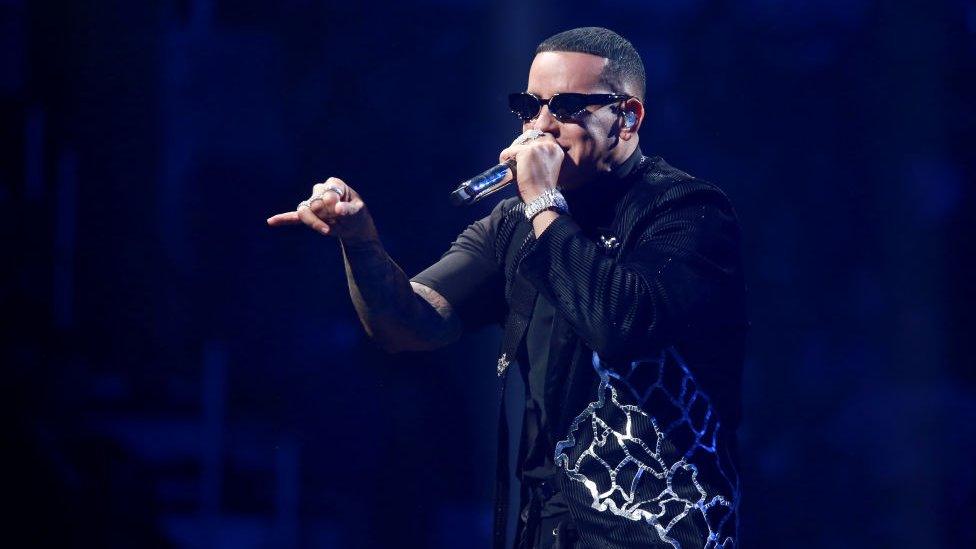
The star played his final show in Puerto Rico on Sunday
As he finished his last-ever show at the packed Coliseo de Puerto Rico in San Juan, the star thanked his fans for their support and urged them "follow Jesus Christ, who is the way, the truth and the life", as a group of drones flew over the stadium, forming the shape of a cross.
He is not the first reggaeton star to eschew music for a life of faith - following in the footsteps of artists like El General, Héctor El Father, Julio Voltio and Jomar El Caballo Negro.
Last year, the Purto Rican rapper Farruko used a concert in Miami to apologise for the vulgar lyrics in his tracks and spoke at length about his religious beliefs.
But it's not just reggaeton. Here are five other stars who left behind a successful career to devote their life to God.
1) Al Green
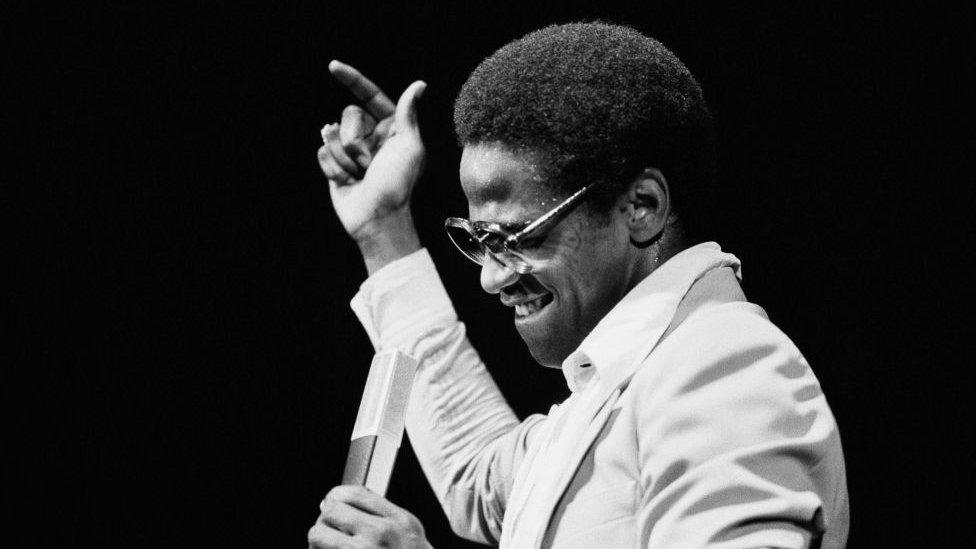
Known for soulful love songs like Let's Stay Together and Tired Of Being Alone, Al Green had a religious epiphany in Disneyland, of all places.
One night, after playing a concert in the theme park, he woke up in his hotel room feeling strangely serene and shouting "Hallelujah!"
Over the next few years, he wavered between his million-dollar career and a desire to sing gospel music - but finally decided he needed to turn his life around when a spurned girlfriend poured boiling food over him and shot herself.
In 1976, Green established the Full Gospel Tabernacle church in Memphis, where he still preaches to this day.
2) Cat Stevens / Yusuf
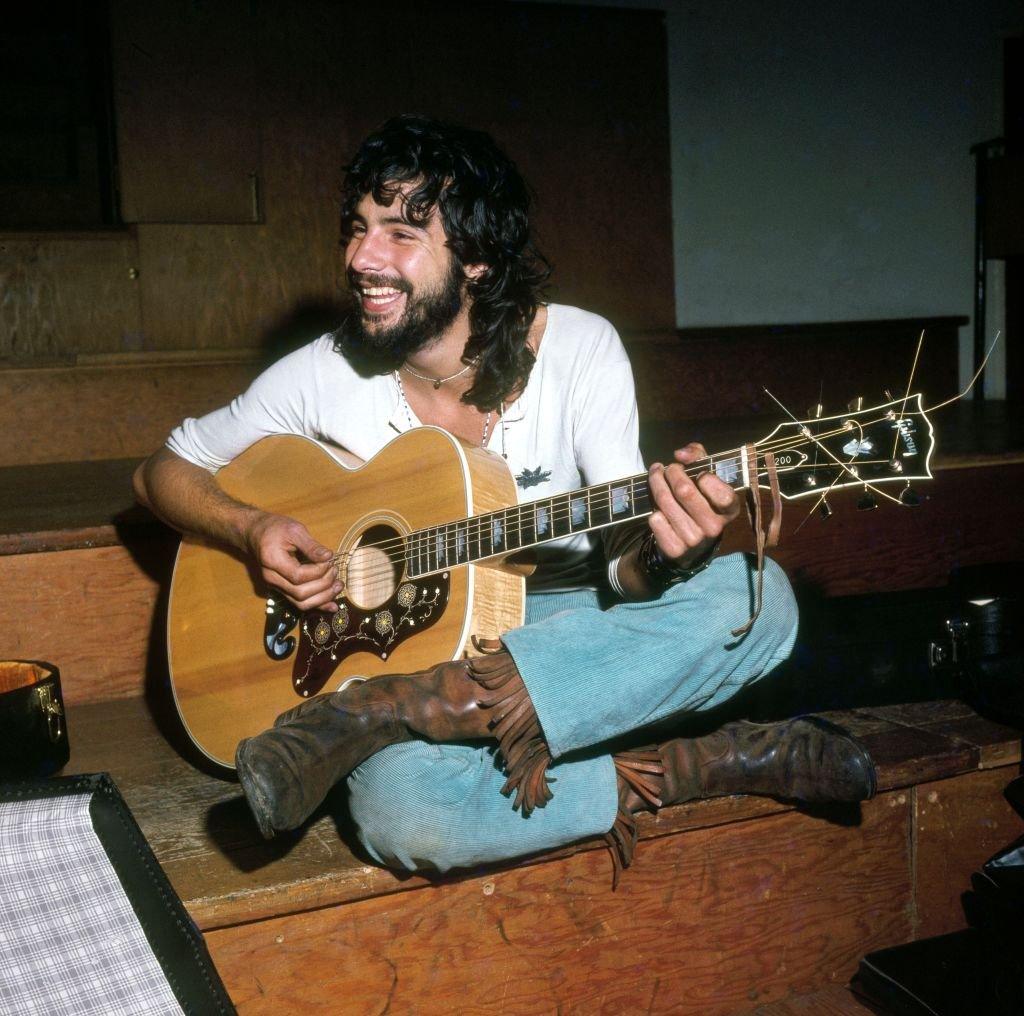
It was a near-death experience while swimming in Malibu that convinced Cat Stevens to devote his life to Islam.
"I was an Englishman. I didn't know it wasn't wise to go out at that time of day and take a swim, so I did," he told Desert Island Discs in 2020.
"I decided to turn back and head for shore and, of course, at that point I realised, 'I'm fighting the Pacific.'
"There was no way I was going to win. There was only one thing to do and that was to pray to the almighty to save me. And I did."
After converting, he changed his name to Yusuf Islam and released a series of religious-themed albums, including recordings intended to teach children the basic tenets of his faith.
He returned to pop in 2006, and recently played a triumphant set in Glastonbury's Legends Slot.
3) Ma$e
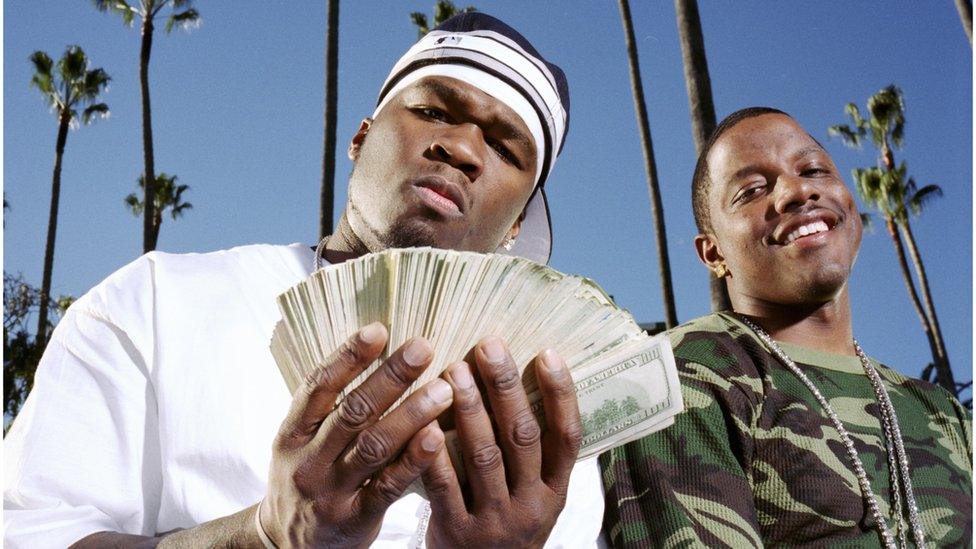
Ma$e (right) pictured with 50 Cent
Harlem rapper Ma$e was known as Puff Daddy's favourite sidekick, lending his sleepy, easy-going flow to tracks like Can't Nobody Hold Me Down, Mo' Money, Mo' Problems and Mariah Carey's Honey.
His debut album, Harlem World, topped the US charts in 1997, at the peak of the short-lived "jiggy rap" era. It contained the hit singles What You Want and Feel So Good which focused on Ma$e's lavish lifestyle, luxury cars and lyrical prowess.
"Girl, I wanna give you carats 'til you feel you a rabbit," he observed on What You Want.
But after his second album failed to catch fire, the rapper told New York DJ Funkmaster Flex he'd found the Lord and was giving up the rap game instead of "leading people, friends, kids and others down a path to hell".
"A lot of people said, 'You should wait to talk about this.' But God wouldn't have given it to you on Sunday if He didn't need you to do it on Monday," he said.
Reverting to his birth name, Mason Durell Betha, he became a pastor and now leads a church in Atlanta.
4) Little Richard
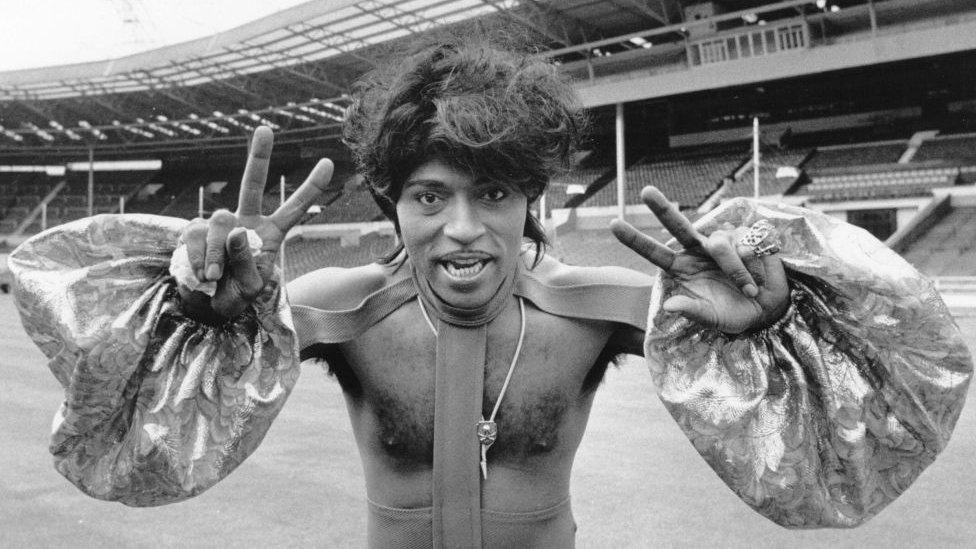
Not everyone sticks it out. Little Richard went from taking part in orgies and snorting $1,000 of cocaine a night to a quiet period of religious devotion, before heading back to a life of excess.
Born in 1932, he was one of the first true rock stars, breaking out with his 1955 song Tutti Frutti, followed by hits like Slippin' and Slidin' and Good Golly Miss Molly.
His songs were energetic, riotous and laced with innuendo - but the singer struggled to reconcile his lifestyle, and his homosexuality, with his religious beliefs.
At the height of his career in 1957, during a show in Australia, Little Richard announced he was quitting rock and roll. He cut his hair, got married and became a traveling evangelist - then enrolled in a theological school in Alabama to study gospel music.
He released the King Of The Gospel Singers album in 1961, but was tempted back to rock and roll a year later. For the rest of his life, he was torn between the pulpit and the pull of the stage.
"Although I sing rock and roll, God still loves me," he said in 2009. "I'm a rock 'n' roll singer, but I'm still a Christian."
5) Brian 'Head' Welch
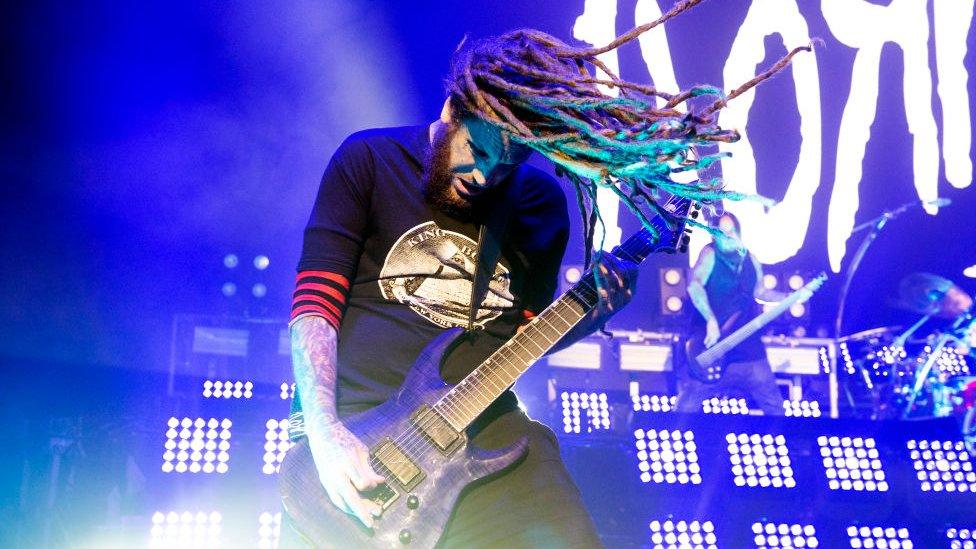
With songs like Freak On A Leash and Rotting In Vain, American nu metal band Korn didn't seem to have much of a grip on a life of piety.
But in 2005, guitarist Brian "Head" Welch realised his life had reached a crossroads. After years of addiction to prescription drugs, alcohol, meth-amphetamines and sleeping pills, he turned to a higher power for help.
"I really wanted God to take away my addiction to drugs," he said. "I was like 'Jesus, if you're real, take away my addiction.' I felt Him come into my life, and that's when everything changed."
He quit the band and was baptised in the River Jordan, then travelled to poverty-stricken areas of India to build orphanages.
Welch later admitted he had been "over-zealous" after his initial conversion, saying he got "obsessed" with religion "just like I was obsessed with drugs".
The comments received negative feedback from Christian websites, who felt he had renounced his faith - but the musician later reaffirmed his beliefs, saying: "I have an amazing relationship with God and I know where that stands. So I'm very confident in that, so I don't gotta really worry about it for temporary controversy."